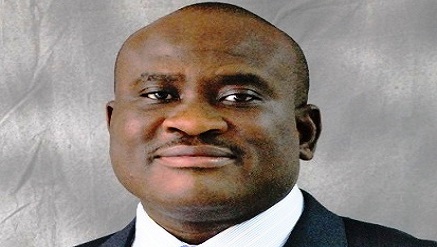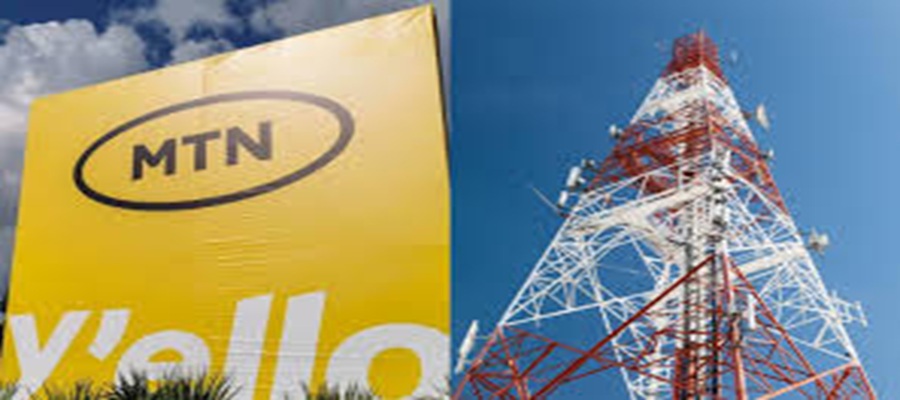Telecom
MTN to Sell 9,183 BTS/Towers in Nigeria

MTN, Africa’s largest wireless operator, has disclosed it is in talks to sell its Base Station Transceiver Stations (BTS/Towers) businesses in Nigeria.
In a statement, at the week, the company revealed about advancement in negotiations to sell its tower business in its operation in Nigeria, that includes 8 640 existing and 543 towers under development, to an entity that will be managed by a large mobile telecommunications infrastructure provider.
However, the Group intends to retain a non-controlling interest of 51% with protective rights in the new entity and will enter into a lease agreement for the use of the tower infrastructure.
The contractual agreements are expected to be finalised in due course and the transaction is expected to close in various tranches under customary closing conditions.
Meanwhile, the statement further showed that the Group witnessed rising profits for the first half of the year and soaring data revenue.
Result of the company’s account showed headline earnings per share, which exclude one-time items, rose 9 percent to 7.29 rand in the six-months through June. Sales grew 11 percent to 72.8 billion rand ($6.8 billion), with data revenue up 39 percent.
An expanded third-generation network and an increase in smartphone use boosted data sales across the 22 countries in which it operates, Sifiso Dabengwa, chief executive officer noted.
Subscribers to MTN Mobile Money, used for payment in areas where banks are limited, grew by 24 percent to 18.4 million people. The shares gained 3.2 percent to 224.50 rand as of 9:44 am in Johannesburg, the biggest intraday rise since Feburary 6.
“Voice revenue continued to be impacted by aggressive competition, regulatory pressures and a weakening economic environment in key markets,” Dabengwa said.
MTN plans to sell 8,640 existing Nigeria towers and 543 under development to an entity that will be managed by a large mobile telecommunications infrastructure provider, the company said. MTN intends to keep a non-controlling interest of 51 percent in the new entity and will enter into a lease agreement for the use of the tower infrastructure.
The Johannesburg based company is seeking transformational deals and has overhauled senior management in its fastest growing markets as it seeks to increase smartphone penetration and boost data revenue outside South Africa, where sales are under pressure from competitors cutting prices and regulators.
Total subscribers increased 3.5 percent to 215 million with 1.7 million net additions in Nigeria, its biggest market with 58.4 million customers. In South Africa, sales declined 7 percent to 19.2 billion rand. An interim dividend of 4.45 rand was declared, up 20 percent.
The company is working closely with relevant authorities in managing U.S. and EU sanctions against Iran, Syria and Sudan it said.
Telecom
MTN Group Announces Proposed Full Acquisition of IHS Towers

MTN Group has revealed that the board of IHS Towers accepted its offer of US$8.50 per share, positioning MTN to boost its stake to 100% ownership following IHS’s divestment of Latin American assets.

MTN Group
The potential transaction is subject to various approvals and the delisting of IHS from the New York Stock Exchange (NYSE).
Upon the completion of IHS’s announced disposals (on 11 February and 17 February 2026) of its Latin American assets, it is intended that MTN will acquire 100% of IHS’s remaining business.
IHS is one of the world’s largest tower companies, with nearly 29 000 high-quality towers in Africa serving various mobile network operators in five key MTN markets.
The proposed transaction, which follows discussions noted on 5 February 2026, marks an important step to unlock compelling value for MTN and strengthen and
reintegrate its ownership of critical digital infrastructure across Africa. For IHS shareholders, it provides them with an attractive opportunity to crystallise value.
The funding for the proposed transaction of the remaining shares MTN does not already own, for a consideration of some US$2.2 billion, will be through cash of
approximately US$1.1 billion on IHS’s balance sheet, along with available liquidity and debt from MTN.
MTN has approximately 24.7% shareholding in IHS. As part of the transaction, it intends to take the company private through the acquisition of all outstanding
shares it does not own, pursuant to a cash merger.
By reintegrating the tower assets, MTN will be able to internalise the margin currently paid to IHS, benefit from current and future incremental third-party
revenues, improve cost predictability and unlock significant long-term value embedded in its existing investment.
“This proposed transaction is a pivotal step in further strengthening MTN Group’s strategic and financial position for a future where digital infrastructure will become ever more essential to Africa’s growth and development,” said MTN Group President and CEO Ralph Mupita.
“This transaction gives us a unique opportunity to buy back our towers and strengthen our ability to be partners for progress to the nation states in which we operate.”
“For IHS customers and partners across the continent, we commit to continuing high standards of service and the right governance of what is the largest standalone and
integrated tower company in Africa, enabled by the excellent people within IHS.”
Through this transaction, shareholders of IHS will receive US$8.50 per share. This translates to an 9.7% premium to the 30-day volume-weighted average price as at
4 February 2026 (the last day of trading before the release of MTN’s cautionary announcement) on the NYSE, enabling them to unlock the value of their investment.
Long-term IHS shareholder Wendel has provided a letter of support to vote in favour of the transaction and will receive full liquidity on its shares upon closing.
With support from Wendel (and certain affiliates) and MTN being able to vote at a general meeting, ~40% has already been secured of a minimum two-thirds approval
of voting shareholders.
IHS Chairman and CEO Sam Dawish commented: “The proposed transaction deepens our long-standing partnership with MTN as it combines Africa’s largest
mobile network operator with one of its largest digital infrastructure platforms and underscores the strong connection between IHS Towers and the African continent.”
In structuring this transaction, MTN remains focused on disciplined capital allocation inclusive of shareholder remuneration going forward. No new equity issuance will be required at the MTN Group level and the funding plan allows for a short-term increase in leverage. The transaction is forecast to be accretive to net income and cash flow.
The proposed transaction is subject to IHS shareholder approval, regulatory approvals in the relevant markets and customary closing conditions.
Telecom
MTN, BUA, Dangote & Other Industry Giants Triumph at NGX Made of Africa Awards

Nigerian Exchange Group (NGX) hosted its annual Made of Africa (MOA) 2025 Awards on Monday, February 4, 2026. The event, held during the NGX year-end celebrations, brought together regulators, listed companies, and market operators such as MTN, BUA, Dangote, Transcorp, to celebrate achievements in compliance, sustainability, and market performance.

In his opening remarks, Dr. Umaru Kwairanga, the Chairman of Nigerian Exchange Limited, said “Excellence in compliance, sustainability, and several other categories recognises the fact that capital market operators and quoted companies must be standards not only in terms of the size of their operations but also adherence to regulations and best practices of corporate social responsibilities.”
He emphasised that the awards serve as a benchmark for excellence. He noted that the 2025 honourees demonstrated significant improvements in branding, customer service, and operational standards despite a challenging economic environment in Nigeria.
Among the evening’s significant winners was MTN Nigeria, which was honoured for its commitment to corporate transparency. The technology giant received the award for Leadership in Sustainability Reporting, emerging as the winner in a category that included Seplat Energy, BUA Cement, and Transnational Corporation of Nigeria PLC.
The award recognised the brand’s adherence to both national and global reporting standards, reflecting its role in advancing environmental, social, and governance (ESG) practices within the Nigerian corporate space.
Tobe Okigbo, Chief Corporate Services & Sustainability Officer, MTN Nigeria, said “This recognition for Leadership in Sustainability Reporting underscores our commitment to transparency and aligning with global best practices.
“As the capital market moves toward greater accountability, MTN Nigeria remains dedicated to demonstrating resilience and faith in the Nigerian economy through comprehensive and standard-compliant reporting.”
The ceremony saw several other major players in the financial sector secure multiple accolades. Chapel Hill Denham emerged as one of the night’s most successful firms, winning in categories including Fund Manager with the Largest Listed Fund Size and Market Operator with the Highest Value of Foreign Portfolio Investment (FPI) Transactions.
Other notable winners included: Cardinal Stone Securities Limited, named Broker of the Year and Equity Trader of the Year, Dangote Cement was awarded Best Issuer in terms of Fixed Income Listings, BUA Cement PLC was recognised as the Most Compliant Listed Company, and Transnational Corporation of Nigeria (Transcorp) PLC received special recognition for Capital Market Excellence in Equity.
Mr. Jude Chiemeka, the Chief Executive Officer of Nigerian Exchange Limited, congratulated the recipients, noting that the market saw a 51% close in the All-Share Index last year, making it the second-best performing market globally. He urged winners and nominees alike to continue striving for excellence to further the aspiration of a $1 trillion Nigerian economy.
Telecom
4G Dominates Nigeria’s Broadband as 5G Lags Behind

Nigeria’s broadband landscape remains anchored by 4G LTE at 52.95% market share in December 2025, with 2G holding steady at 37.37%, while 5G penetration crawls at just 3.77%, per Nigerian Communications Commission (NCC) data.

4G’s dominance stems from urban smartphone migrations and MTN-Airtel infrastructure expansions, fuelling the digital economy, as 2G persists in rural areas due to feature phone reliance and a stubborn device gap.
5G growth stalls from high smartphone costs amid inflation, telco preference for 4G’s quicker returns over capital-heavy 5G rollouts, and limited mainstream apps beyond elite urban streaming in Lagos and Abuja.
Broadband subscriptions topped 112 million, lifting penetration to 51.97%—up from 42.2% in October 2024—crossing the halfway mark for the first time, though monthly gains of 2-3 million slowed mid-year amid population growth and regional disparities.
The NCC’s 70% target stays elusive, highlighting sustained urban-rural demand but underscoring needs for affordable devices, infrastructure, and use cases to accelerate high-speed access nationwide.

 General News2 days ago
General News2 days agoJumia Targets Break-even in 2026 After Strong Q4 Surge

 General News2 days ago
General News2 days agoNigeria’s Banks Race to Meet CBN Recapitalisation Deadline Amid Verification Push

 General News2 days ago
General News2 days agoBOI, MTN Foundation Unveil N1Bn Fund for Women Entrepreneurs

 General News2 days ago
General News2 days agoUBA Unveils Diaspora Platform to Connect Global Africans with Investment, Wealth Opportunities

 E-Financial2 days ago
E-Financial2 days agoNo VAT on Land, Buildings and Rent Under New Tax Law — Oyedele

 E-Financial2 days ago
E-Financial2 days agoCBN Slams Up to N10m Fine on Banks and Cheque Printers for Security Breaches

 E-Financial2 days ago
E-Financial2 days agoIs Nigeria Borrowing to Survive or to Build?

 General News1 day ago
General News1 day agoLeo Stan Ekeh Foundation, Zinox Group To Invest 10B on 1000 University Tech Scholarships for Indigent Nigeria Wiz-kids
























